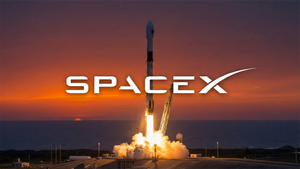Sequana Medical Announces US FDA Approval of alfapump® for the Treatment of Recurrent or Refractory Ascites due to Liver Cirrhosis
- alfapump® is the first US approved active implantable medical device (Class III) for the treatment of recurrent or refractory ascites due to liver cirrhosis
- PMA Approval and FDA Breakthrough Device Designation
- US market opportunity estimated at over $2 billion in 2025, growing at 9%1 due to MASH/NASH2 and alcoholic liver disease
- US commercial launch planned for H2 2025 through speciality salesforce targeting liver transplant centers
- POSEIDON pivotal study shows virtual elimination of therapeutic paracentesis and improvement in quality of life3, 4
- Over 1,000 alfapump Systems implanted
KOL webcast January 8th, 2025 at 15:00 CET / 09:00 am EST
Ghent, Belgium – 23 December 2024 – Sequana Medical NV (Euronext Brussels: SEQUA, the "Company" or "Sequana Medical"), a pioneer in the treatment of drug-resistant fluid overload in liver disease, heart failure and cancer, today announces that it has received Premarket Approval (PMA) from the US Food and Drug Administration (FDA) to market alfapump® for the treatment of recurrent or refractory ascites due to liver cirrhosis in the United States. With this major regulatory milestone, achieved earlier than market expectations, alfapump is the first active implantable medical device in the US that automatically and continuously removes ascites from the abdomen into the bladder. The Company estimates there will be approximately 70,000 patients in the US with recurrent or refractory ascites, representing a market opportunity in excess of $2 billion for the alfapump in 2025. This population is forecast to reach 130,000 patients by 2032, primarily driven by NASH/MASH and alcoholic liver disease1.
Dr. H.E. Vargas, M.D., Professor of Medicine for the Mayo Clinic College of Medicine (Phoenix, Arizona, US), POSEIDON Study Principal Investigator, commented: “The approval of alfapump by the FDA opens the door to a breakthrough therapeutic option for patients with ascites. The introduction of the system will be welcome by patients, families and their care providers as this technology not only provides effective treatment, but also has been shown to improve quality of life4.”
Ian Crosbie, Chief Executive Officer of Sequana Medical, continued: "With a standard of care that has seen minimal change in thousands of years, today marks a huge milestone for the large and growing liver ascites community in the US. Our vision is to transform the lives of these patients. Recurrent or refractory liver ascites is a devastating condition with a terrible impact on the lives of our patients and their caregivers, not only for the painful and burdensome paracentesis procedure itself but also in the weeks leading up to each drainage. The POSEIDON clinical study results demonstrate that the alfapump can virtually eliminate the need for therapeutic paracentesis, and improve patient quality of life, with a safety profile comparable to standard of care, delivering a twenty-first century solution that can allow these patients to take back their lives3,4. We wish to thank all the patients and investigators who made this possible by participating in the POSEIDON study. With over 1,000 alfapump systems implanted to date, we look forward to starting commercialisation in H2 2025, bringing this innovative solution to many more patients in need.”
The Company is preparing for the US commercial launch of the alfapump System in H2 2025, through a focused specialty sales force concentrating on the 90 liver transplant centers that represent the large majority of target customers. The Company has received FDA Breakthrough Device Designation for the alfapump System and has applied, and expects to receive, NTAP (new technology add-on payments) which should facilitate patient access to the device. In addition to the existing ICD-10 procedure codes for the alfapump procedure, the American Medical Association has granted six new CPT®5 III reimbursement codes, available for use by healthcare professionals and payors since July 1st, 2024, for procedures related to the alfapump System.
“We are highly encouraged by the enthusiastic feedback for the alfapump that we are receiving from the clinical community – there is a clear need for improved treatment options and we are putting in place the commercial team to deliver our novel therapy. Preparations for commercial launch are underway, and we are already working with target centers for the initial commercial launch planned for H2 2025. It is a huge privilege to bring such a breakthrough in therapy to the clinical and patient communities, and we are excited to work with them to establish alfapump as the new standard of care” commented Martijn Blom, Chief Commercial Officer of Sequana Medical.
Timur Resch, Global Vice President QM/QA/RA at Sequana Medical, who has been leading the regulatory process since 2016, added: “The receipt of the PMA approval for our alfapump System is a major milestone for our company and reflects many years of diligent work by the Sequana team. We wish to thank the FDA for its collaboration and support in bringing this highly important breakthrough device to US patients who will be very grateful for this new treatment option.”
KOL Webcast on January 8, 2025 – 3pm CET, 9am ET
The Company will be hosting a further webcast with key opinion leaders on January 8, 2025 at 3pm CET, 9am ET to discuss the US FDA approval of alfapump, the clinical need and the planned commercial US roll-out.
- Registration webcast: please click here
- Registration conference call (only if you wish to participate in the Q&A): please click here. Once registered, you will receive dial-in numbers and a confirmation code.
The webcast and conference call will be conducted in English and a replay will be available on Sequana Medical’s website shortly after.
For more information, please contact:
Sequana Medical
Investor relations
E: IR@sequanamedical.com
T: +44 (0) 797 342 9917
Optimum Strategic Communications
Nick Bastin, Vici Rabbetts, Elena Bates
E: Sequana@optimumcomms.com
T: +44 (0) 208 078 4357
About alfapump in recurrent or refractory ascites due to liver cirrhosis & the POSEIDON study
Recurrent or refractory ascites is a severe condition characterized by the accumulation of fluid in the abdomen. The current standard treatment involves therapeutic paracentesis, an invasive and burdensome procedure that drains ascites from the abdomen using a large needle over an extended period. The alfapump is approved by the US FDA for the treatment of recurrent or refractory ascites due to liver cirrhosis. It is the first active implantable medical device in the US that automatically and continuously removes ascites from the abdomen into the bladder, where it is naturally eliminated through urination. To date, over 1,000 alfapump systems have been implanted.
The US market of recurrent and refractory ascites due to liver cirrhosis is forecast to grow by an average of 9% per year, from approximately 70,000 patients in 2025 to 130,000 patients by 2032, primarily driven by the increasing prevalence of NASH / MASH6. The total market opportunity for alfapump is estimated at over $2 billion in 2025, including approximately $500 million from the Company’s initial priority target market of patients requiring at least 12 paracenteses per year.
The FDA’s approval of the PMA is based on the successful execution of Sequana Medical’s pivotal POSEIDON study, a landmark study across 18 centers in the US and Canada with a total of 69 patients implanted with the alfapump. The primary effectiveness endpoints at six months post-implantation in the Pivotal Cohort7 exceeded the predefined thresholds with statistical significance, and primary safety endpoint data was in line with expectations8. Data at 12 months post-implantation continued to show a strong and durable clinical profile, virtually eliminating the need for therapeutic paracentesis and delivering an improvement in quality of life (as defined by subjective physical health (assessed by SF-36 PCS) and ascites symptoms (assessed by Ascites Q))9. At AASLD’s The Liver Meeting in November 2024, key POSEIDON investigators reported that the alfapump virtually eliminated the need for large volume paracentesis at 24 months, with overall survival of 62%10.
Data from the patient preference study and a matched cohort analysis of the NACSELD-III registry with the POSEIDON Pivotal Cohort indicated that US patients have a strong preference for the alfapump vs standard paracentesis procedures and that the safety profile of the alfapump is comparable to standard of care.11
About Sequana Medical
Sequana Medical NV is a pioneer in treating fluid overload, a serious and frequent clinical complication in patients with liver disease, heart failure and cancer. This causes major medical issues including increased mortality, repeated hospitalizations, severe pain, difficulty breathing and restricted mobility. Although diuretics are standard of care, they become ineffective, intolerable or exacerbate the problem in many patients. There are limited effective treatment options, resulting in poor clinical outcomes, high costs and a major impact on their quality of life. Sequana Medical is seeking to provide innovative treatment options for this large and growing "diuretic resistant" patient population. alfapump® and DSR® are Sequana Medical's proprietary platforms that work with the body to treat diuretic-resistant fluid overload, and are intended to deliver major clinical and quality of life benefits for patients, while reducing costs for healthcare systems.
The Company received US FDA approval for the alfapump System for the treatment of recurrent or refractory ascites due to liver cirrhosis in December 2024, following the grant of FDA Breakthrough Device Designation in 2019.
Results of the Company's RED DESERT and SAHARA proof-of-concept studies in heart failure published in European Journal of Heart Failure in April 2024 support DSR's mechanism of action as breaking the vicious cycle of cardiorenal syndrome. All three patients from the non-randomized cohort of MOJAVE, a US randomized controlled multi-center Phase 1/2a clinical study, have been successfully treated with DSR, resulting in a dramatic improvement in diuretic response and virtual elimination of loop diuretic requirements12. The independent Data Safety Monitoring Board approved the start of the randomized MOJAVE cohort of up to a further 30 patients, which is planned after alfapump US PMA approval.
Sequana Medical is listed on the regulated market of Euronext Brussels (Ticker: SEQUA.BR) and headquartered in Ghent, Belgium. For further information, please visit www.sequanamedical.com.
Indication for Use: The alfapump® System is intended for single patient use only in adult patients with refractory or recurrent ascites due to liver cirrhosis. It is indicated for the removal of excess peritoneal fluid from the peritoneal cavity into the bladder, where it can be eliminated through normal urination.
Contraindications: The alfapump® System is MRI unsafe. Hyperbaric oxygen therapy is contraindicated.
Warnings, Risks, and Precautions: Consider risks associated with implanting the alfapump® System including risk of peritoneal cavity infections, Coagulopathy, Small bladder capacity and/or obstructive uropathy. The following procedures or therapies could impact the alfapump® System function: Supersonic therapy and high-frequency heat therapy, Transcutaneous Electrical Nerve Stimulation (TENS), Lithotripsy, Defibrillation, Radiation therapy, Electrocautery, or use of other implantable medical devices and wearable devices.
Adverse Events: In addition to procedure related risks the following Adverse Events may occur: pump pocket hematoma, skin erosion, infection, pump migration, catheter clogging or other catheter complications resulting in tissue damage or loss of or change in therapy, genito-urinary complications, reduced kidney function, hepatic encephalopathy, progression of liver disease, and other systemic effects.
P230044 PMA approval letter on file
U.S. Federal law restricts alfapump System to sale by or on the order of a physician.
The alfapump® System is currently not approved in Canada.
DSR® therapy is still in development and is currently not approved in any country. The safety and effectiveness of DSR® therapy has not been established.
Note: alfapump® and DSR® are registered trademarks.
Forward-looking statements
This press release may contain predictions, estimates or other information that might be considered forward-looking statements. Such forward-looking statements are not guarantees of future performance. These forward-looking statements represent the current judgment of Sequana Medical on what the future holds, and are subject to risks and uncertainties that could cause actual results to differ materially. Sequana Medical expressly disclaims any obligation or undertaking to release any updates or revisions to any forward-looking statements in this press release, except if specifically required to do so by law or regulation. You should not place undue reliance on forward-looking statements, which reflect the opinions of Sequana Medical only as of the date of this press release.
1 Based on US and Canada market assessment conducted by highly experienced international consulting group
2 NASH – Non-alcoholic steatohepatitis; MASH – Metabolic dysfunction-associated steatohepatitis
3 POSEIDON study results in SSED (PMA P230044, FDA approval letter on file) – 100% median reduction in number of therapeutic paracentesis per month in Pivotal Cohort
4 Quality of life as defined by subjective physical health (assessed by SF-36 PCS) and ascites symptoms (assessed by Ascites Q)
5CPT copyright 2024 American Medical Association. All rights reserved. CPT® is a registered trademark of the American Medical Association.
6 Based on US and Canada market assessment conducted by highly experienced international consulting group
7 The Pivotal Cohort is used for the primary effectiveness endpoints and consists of 40 patients implanted with the alfapump
8 Data reported in press release of 25 October 2022
9 Data reported in press release of 19 October 2023
10 Based upon the pivotal cohort of the POSEIDON study, data reported in press release of 18 November 2024
11 Data reported in press release of 19 October 2023; Patient Preference study conducted by RTI Health Solutions, and matched cohort analysis presented by Dr. Bajaj at EASL Congress 2024.
12 Data reported in press release of 25 March 2024; mean increase of 326% in six-hour urinary sodium excretion at 3 months follow up vs baseline, and 95% reduction of loop diuretics over same period
Attachments
- 241223 Press release_PMA approval alfapump_ENG_FINAL
- 241223 Press release_PMA approval alfapump_NL_FINAL







